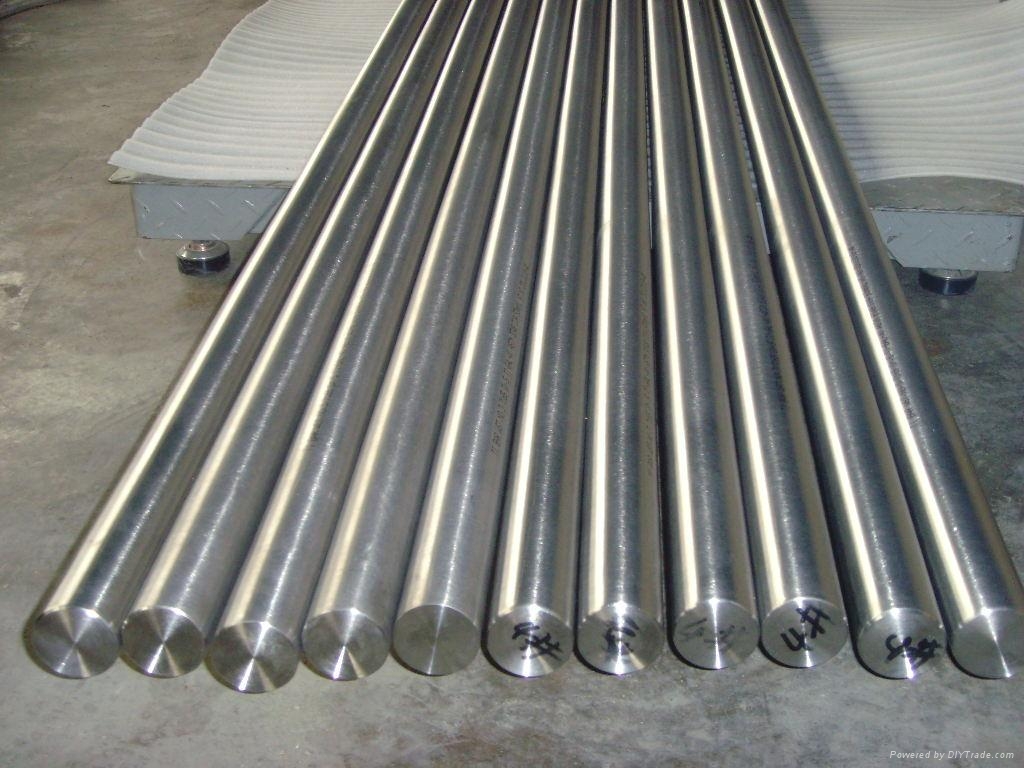Vital Role of Titanium 6242 in Aerospace Industry

In modern aerospace engineering, materials are more than just parts—they define how well an aircraft flies, how long its parts last, and how safely it handles extremes. Titanium 6242 (also written Ti‑6Al‑2Sn‑4Zr‑2Mo, often called “Ti‑6242”) is one of those advanced alloys that’s found its way into many critical aerospace applications. Let’s explore what makes it so important, and why aerospace engineers trust it.
What Is Titanium 6242?
Titanium 6242 is a near‑alpha titanium alloy. Its main constituents are:
- Aluminum (Al) ≈ 5.5‑6.5 %
- Tin (Sn) ≈ 1.8‑2.2 %
- Zirconium (Zr) ≈ 3.6‑4.4 %
- Molybdenum (Mo) ≈ 1.8‑2.2 %
- Other elements (oxygen, carbon, etc.) in small, tightly controlled amounts.
This alloy is designed for environments in which both strength and stability under high temperature are required. It behaves well at elevated heat levels, resisting deformation (creep), maintains good toughness, and can be welded and formed without too many difficulties compared to more exotic materials.
Key Benefits for Aerospace Use
Here are the main reasons why AMS 4919 has become so valuable in aerospace:
High Performance at Elevated Temperatures
Ti‑6242 remains strong and stable even at high operating temperatures—up to about 538‑550 °C (1,000‑1,022 °F) in many cases. This makes it suitable for parts in hot zones—turbine compressors, afterburners, hot airframe sections near engines—where lesser alloys would creep or degrade.
Good Creep Resistance & Thermal Stability
Over time and under stress and heat, materials can gradually deform (creep). Ti‑6242 shows excellent resistance to creep compared to common titanium alloys like Ti‑6Al‑4V. This is critical in aerospace, where parts see cyclic stresses over long periods.
Strong Strength‑to‑Weight Ratio
Titanium alloys are light for their strength. AMS 4919 has density around 4.5 g/cm³, giving designers a material that is much lighter than many steels while offering comparable strength under many conditions. That helps reduce aircraft weight, improving fuel efficiency and payload.
Good Toughness and Durability
Aerospace components must resist fatigue (repeated stresses), thermal cycling, and sometimes harsh environments. Ti‑6242 shows good fracture toughness and resists damage or distortion under such conditions.
Weldability & Machinability
Even though it’s built for heat and strength, Ti‑6242 can be welded and machined with care. That flexibility means manufacturers can produce complex parts (discs, impellers, hot‑section components) without needing completely different materials.
Corrosion Resistance
Titanium naturally forms a passive oxide layer that helps resist corrosion. With Ti‑6242, this quality is retained, especially important for aerospace parts exposed to humidity, salt air, or other corrosive agents.
Typical Applications in Aerospace
Because of the combination of properties, Ti‑6242 is used in:
- Turbine engine components like compressor blades, discs, hot‑section parts.
- Afterburner structures where temperature and structural integrity are both critical.
- Hot‑airframe parts near engine nozzles or exhaust systems.
- Impellers, discs, and other critical rotating parts where creep resistance and mechanical strength at temperature are needed.
Why Aerospace Industry Relies on Ti‑6242
Putting everything together:
- Aerospace parts must endure high temperatures, repeated stresses, and demands for light weight.
- Safety margins are tight; failure is not an option. Engineers need materials with well‑known, proven behaviour.
- Ti‑6242 provides a package: elevated temperature performance, creep resistance, lightness, and durability.
- Because it is already standardized (AMS / UNS spec, etc.) and available from specialty suppliers, it can be reliably sourced and certified.
Conclusion
Titanium 6242 is a key material in aerospace engineering. When heat, stress, and toughness all matter—Ti‑6242 delivers. It helps build engines, hot airframe components, and critical rotating parts that fly safely for thousands of hours. For engineers who want performance where it counts, this alloy is a go‑to choice.
If you’re looking for aerospace‑grade Ti‑6242 or related specialty titanium alloys, check out FlightMetals, the specialty metals supplier.